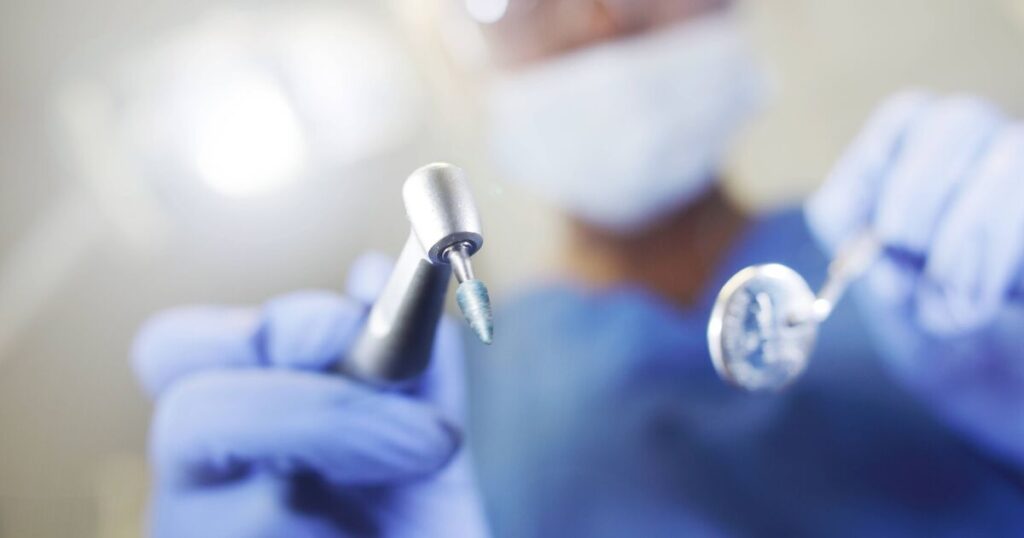
A trip to the dentist isn’t exactly a thrilling prospect for most, and with routine check-ups typically setting you back £27.40, it’s no wonder many opt to skip them entirely.
However, it may come as a surprise that certain people residing in England could be eligible for complimentary dental appointments and treatments via the NHS. This is particularly relevant for those of a specific age bracket and anyone receiving several key benefits from the Department for Work and Pensions (DWP).
The Express has delved into who qualifies for this and what actions you can take next. If you’ve forked out for NHS dental treatment but later find out you qualify for free appointments, you might also be entitled to a refund.
Who is eligible for free NHS dental appointments and treatment in England?
According to the NHS, there are five categories of people who automatically qualify for free NHS dental care. This specifically includes the following:
- You receive War Pension Scheme payments, or Armed Forces Compensation Scheme payments and the treatment is for your accepted disability
- You’re aged under 18, or under 19 and in full-time education
- You’re pregnant or have had a baby in the last 12 months
- You’ve had a stillbirth in the past 12 months
- You’re getting treatment in an NHS hospital from a hospital dentist (but you may still need to pay for dentures or bridges)
Furthermore, you might be eligible if you or your partner is on certain government benefits. Dependents under 20 years old may also benefit from this, provided you are claiming:
- Universal Credit – but only if your income is below a certain amount
- Income Support
- Income-based Jobseeker’s Allowance
- Income-related Employment and Support Allowance
- Pension Credit Guarantee Credit
- Pension Credit Guarantee Credit with Savings Credit
Bear in mind that these rules only apply to NHS dental treatments. If you opt for private care, you’ll need to foot the bill. Typically, you’ll need to provide proof of eligibility for free NHS care, though this may depend on the reason for your exemption.
Examples of proof approved by the NHS include:
- A notification of birth form, or your baby’s birth certificate
- A stillbirth certificate
- A valid HC2 certificate – available for people on a low income
- Your birth certificate
- A valid maternity exemption certificate
- A maternity certificate (MatB1)
Nevertheless, official NHS advice adds: « If you receive War Pension Scheme or Armed Forces Compensation Scheme payments and get free dental treatment, you’ll usually need to pay for it yourself first and claim the money back from Veterans UK. »
Find out about the symptoms you need to watch out for and get health advice with our free health newsletter from the Daily Express
How can I verify my eligibility?
If you think you may qualify for free NHS dental treatment, visit the NHS Business Services Authority (NHSBSA) website to find out. The platform provides a complimentary eligibility assessment that generally takes three minutes to complete. Should you be eligible, it will walk you through the subsequent steps to secure support.
Anyone who suspects they have incorrectly paid for NHS dental appointments may be entitled to a refund.
What is the NHS Low Income Scheme?
Even if you don’t qualify for free NHS dental treatment, you could still reduce costs through the NHS Low Income Scheme. This initiative doesn’t just cover dental appointments but also assists with other vital expenses, including prescriptions, eye examinations, wigs, and travel costs for medical care.
The amount you’re eligible to receive primarily hinges on your weekly earnings, savings, and essential outgoings at the time of your application.
You can only submit an online application if you have no more than £6,000 in capital or savings, and you must also be one of the following:
- A pensioner
- A student
- Earning a wage
- Receiving state benefits
- Living in a care home
Guidance from the NHSBSA adds: « If the amount you have left is low, you may be able to get help through the NHS Low Income Scheme. Any help you’re entitled to is also available to your partner, if you have one.
« If you have already paid for treatment, you can apply for a refund at the same time as you apply for the scheme. We will normally assess your application within 18 working days from the date we get your form. »
For more information on the help available, head to the NHSBSA website here.
